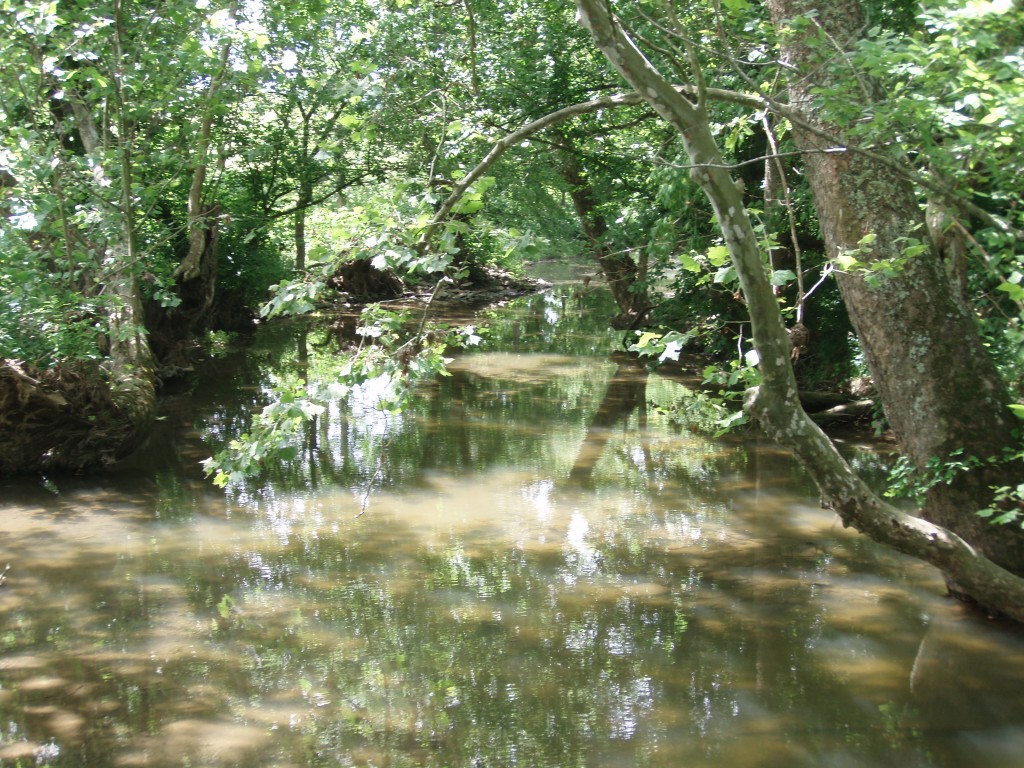Incentive Grants to Improve Water Quality Available for Lexington Businesses, Neighborhood Organizations & Others

Boone Creek
The Fayette Alliance proudly served on the Steering Committee that drafted the incentive grant program–along with members of the development, neighborhood, and commercial property sectors.
“Mayor announces incentive grants for water quality projects”
Press Release by Live Green Lexington, LFUCG Department of Environmental Quality
Lexington businesses, churches, apartment complexes and neighborhood organizations are eligible for incentive grants to improve water quality, Mayor Jim Newberry announced today.
“The incentive grant program will help engage our entire community in ways to help us improve water quality,” Newberry said. “Funded through the new water quality management fee that went into effect last month, the incentive grant program gives money back to the community for water quality and stormwater improvement projects.”
Possible projects include installing a rain garden, developing an educational program or replacing an asphalt parking lot with permeable pavers.
A workgroup comprised of members of the business, development, education and neighborhood communities developed the guidelines for the program in the latter part of 2009.
“We should be proud that a group of people from diverse backgrounds and sometimes competing interests could get on the same page and come up with such an innovative program,” said Andy Haymaker, chairman of the workgroup and vice-president of Haymaker Development Company.
For the upcoming year, $1.5 million is available for these grants, to be awarded in July. Because neighborhoods and institutions have different needs, there are two types of incentive grants available.
“Neighborhood, community, and homeowner associations are eligible for the Class A grants,” said Cheryl Taylor , commissioner of the Department of Environmental Quality. “These grants, for up to $50,000, are intended for neighborhood-related activities.” The deadline for the Class A grants application is April 30.
Neighborhood projects must fulfill at least one of the following goals:
- Install a feature that serves to improve water quality;
- Involve citizens in activities to improve water quality, reduce water pollution etc.;
- Educate citizens about water quality and stormwater-related issues;
- Install a feature that serves to reduce stormwater runoff.
Neighborhood grants require a match, to be provided by the applicant through cost-sharing and/or volunteer sweat-equity.
Schools, businesses, churches, apartment complexes and other institutions are eligible for the Class B grants. These grants can cover education and infrastructure projects of all sizes, and projects may be funded for up to $500,000. The deadline for Class B grants application is May 28.
There are three general types of projects eligible for the Class B program:
- Water Quality Education/Public Involvement Projects – Projects designed to provide and promote public or private education and involvement related to the importance of stormwater quality in Fayette County .
- Structural Water Quality BMP Projects – Design or construction of structural Best Management Practices (BMPs) that reduce pollutant discharge to the city’s stormwater conveyance system and the waters of the Commonwealth.
- Structural Water Quantity BMP Projects – Design or construction of structural BMPs that reduce peak offsite stormwater discharge rates in excess of minimum requirements specified in city Engineering Manuals.
The Division of Water Quality will receive the applications and make recommendations for project selection. Projects will be ranked based upon impact, innovation and other factors. The Water Quality Fees Board, a citizen’s board appointed by the mayor, will review all recommendations and make the final selection on all grant awards.
Stormwater runoff is the largest contributor to water quality problems in the U.S. Stormwater runoff occurs when rain or melting snow flows over impervious surfaces, like roofs, parking lots and sidewalks. Impervious surfaces do not absorb water. The water picks up litter, chemicals or sediment on its way to storm sewers, and eventually to creeks and streams.
EPA sued the city in 2006 for violations of the federal Clean Water Act. Under a legal agreement, the Urban County Council approved the water quality management fee to pay for improvements to address stormwater quality, monitoring and enforcement.
Please call LexCall at 311 or (859) 425-2255 for more information or to request an application packet. You may also download the application packet at www.lexingtonky.gov/waterquality.

